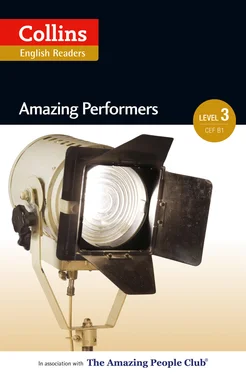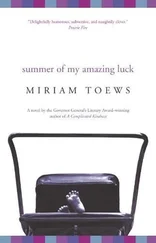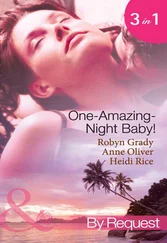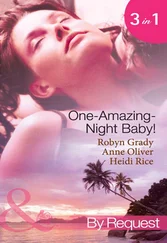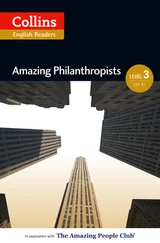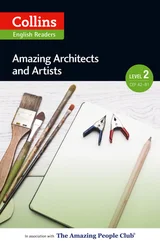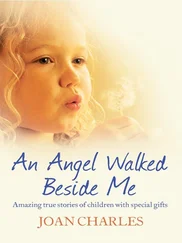Cover
Title Page
Introduction INTRODUCTION Collins Amazing People Readers are collections of short stories. Each book presents the life story of five or six people whose lives and achievements have made a difference to our world today. The stories are carefully graded to ensure that you, the reader, will both enjoy and benefit from your reading experience. You can choose to enjoy the book from start to finish or to dip into your favourite story straight away. Each story is entirely independent. After every story a short timeline brings together the most important events in each person’s life into one short report. The timeline is a useful tool for revision purposes. Words which are above the required reading level are underlined the first time they appear in each story. All underlined words are defined in the glossary at the back of the book. Levels 1 and 2 take their definitions from the Collins COBUILD Essential English Dictionary and levels 3 and 4 from the Collins COBUILD Advanced English Dictionary . To support both teachers and learners, additional materials are available online at www.collinselt.com/readers . The Amazing People Club ® Collins Amazing People Readers are adaptations of original texts published by The Amazing People Club. The Amazing People Club is an educational publishing house. It was founded in 2006 by educational psychologist and management leader Dr Charles Margerison and publishes books, eBooks, audio books, iBooks and video content, which bring readers ‘face to face’ with many of the world’s most inspiring and influential characters from the fields of art, science, music, politics, medicine and business.
The Grading Scheme THE GRADING SCHEME The Collins COBUILD Grading Scheme has been created using the most up-to-date language usage information available today. Each level is guided by a brand new comprehensive grammar and vocabulary framework, ensuring that the series will perfectly match readers’ abilities. CEF band Pages Word count Headwords Level 1 elementary A2 64 5,000–8,000 approx. 700 Level 2 pre-intermediate A2–B1 80 8,000–11,000 approx. 900 Level 3 intermediate B1 96 11,000–15,000 approx. 1,100 Level 4 upper intermediate B2 112 15,000–19,000 approx. 1,700 For more information on the Collins COBUILD Grading Scheme, including a full list of the grammar structures found at each level, go to www.collinselt.com/readers/gradingscheme . Also available online: Make sure that you are reading at the right level by checking your level on our website ( www.collinselt.com/readers/levelcheck ).
Pablo Casals
Louis Armstrong
Frank Sinatra
Edith Piaf
Maria Callas
Elvis Presley
Glossary
Keep Reading
Copyright
About the Publisher
INTRODUCTION 
Collins Amazing People Readers are collections of short stories. Each book presents the life story of five or six people whose lives and achievements have made a difference to our world today. The stories are carefully graded to ensure that you, the reader, will both enjoy and benefit from your reading experience.
You can choose to enjoy the book from start to finish or to dip into your favourite story straight away. Each story is entirely independent.
After every story a short timeline brings together the most important events in each person’s life into one short report. The timeline is a useful tool for revision purposes.
Words which are above the required reading level are underlined the first time they appear in each story. All underlined words are defined in the glossary at the back of the book. Levels 1 and 2 take their definitions from the Collins COBUILD Essential English Dictionary and levels 3 and 4 from the Collins COBUILD Advanced English Dictionary .
To support both teachers and learners, additional materials are available online at www.collinselt.com/readers.
The Amazing People Club ®
Collins Amazing People Readers are adaptations of original texts published by The Amazing People Club. The Amazing People Club is an educational publishing house. It was founded in 2006 by educational psychologist and management leader Dr Charles Margerison and publishes books, eBooks, audio books, iBooks and video content, which bring readers ‘face to face’ with many of the world’s most inspiring and influential characters from the fields of art, science, music, politics, medicine and business.
 THE GRADING SCHEME
THE GRADING SCHEME
The Collins COBUILD Grading Scheme has been created using the most up-to-date language usage information available today. Each level is guided by a brand new comprehensive grammar and vocabulary framework, ensuring that the series will perfectly match readers’ abilities.
|
|
CEF band |
Pages |
Word count |
Headwords |
| Level 1 |
elementary |
A2 |
64 |
5,000–8,000 |
approx. 700 |
| Level 2 |
pre-intermediate |
A2–B1 |
80 |
8,000–11,000 |
approx. 900 |
| Level 3 |
intermediate |
B1 |
96 |
11,000–15,000 |
approx. 1,100 |
| Level 4 |
upper intermediate |
B2 |
112 |
15,000–19,000 |
approx. 1,700 |
For more information on the Collins COBUILD Grading Scheme, including a full list of the grammar structures found at each level, go to www.collinselt.com/readers/gradingscheme.
Also available online:Make sure that you are reading at the right level by checking your level on our website ( www.collinselt.com/readers/levelcheck).

1876–1973
the Catalan cello-player
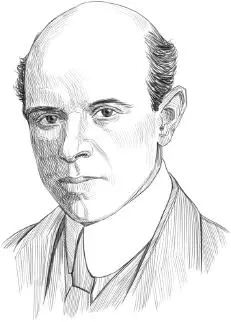
I had two loves in my life – music and Catalonia, the place where I was born. Music was always with me, but I had to leave Catalonia because of war. I was never able to return. So my life is a story of happiness and sadness.

I was born on 29 thDecember 1876 in El Vendrell in Catalonia into a proud Catalan family. Although my mother was born in Puerto Rico, her parents were Catalan too. Let me explain. Catalonia is the north-east region of Spain, with Barcelona as its regional capital. The Catalan people are very independent, and they have their own language and culture. Although they are part of Spain, many of them would like Catalonia to be an independent country.
My family was very musical, and music was always my first language. My father played and sang music in our local church, and he often took me with him. He gave me lessons, too, and by the age of four I could play the piano. Father was a good teacher. I gave my first public performance on the violin when I was six. It was not a completely happy experience, however, as a group of boys laughed at me because I played with my eyes closed.
Читать дальше
